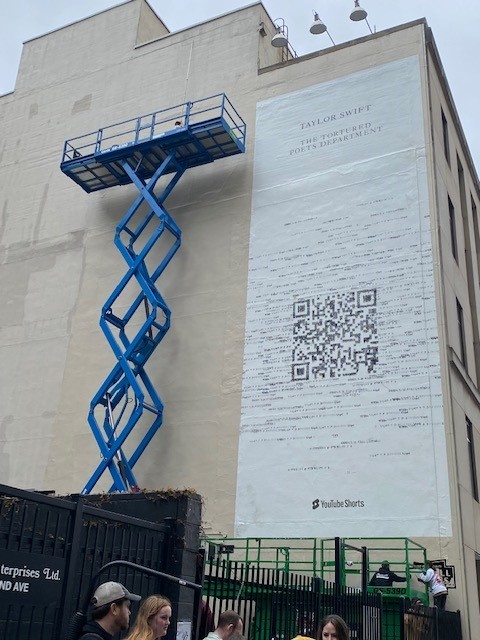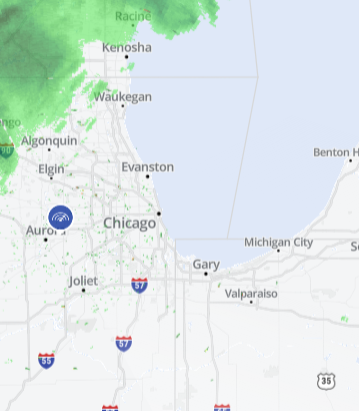Chicago isn't the only city fighting rivers after flooding seized the area throughout the week.
Artists, farmers, National Guardsmen — even prison inmates — pitched in Saturday to help a small Missouri river town hold back the bulging Mississippi River.
By Saturday, the sudden floods had stopped, but river flooding was getting worse, both on the Mississippi and on dozens of smaller rivers in Iowa, Illinois, Indiana, Wisconsin, Michigan and Missouri. Levees were threatened, and hundreds of people had been evacuated from their homes.
The National Weather Service predicted what it characterizes as "major" flooding on the Mississippi from the Quad Cities through just north of St. Louis by this weekend, with similar projections further south into early next week.
By midmorning in Clarksville — nestled beneath majestic bluffs about 75 miles upriver from St. Louis — filled sandbags were stacked between the river and downtown, an area filled with antique shops and artist stores. Volunteers, including nearly three dozen prisoners from Algoa Correctional Center in Jefferson City, were reinforcing the makeshift levee to protect against seepage.
Mississippi River levels vary greatly but are typically highest in the spring, so minor flooding is not uncommon. When river levels exceed flood stage by several feet, serious problems can occur.
High water forced the closure Friday of one of two bridges at Quincy, Ill., and the Mississippi River crossing at Louisiana, Mo., was scheduled to close Saturday. That leaves just one bridge — at Hannibal, Mo. — open between Quincy and the St. Louis area.
River traffic, including barges, is at a standstill because the fast-flowing Mississippi is too dangerous for travel. Nearly all of the locks between the Quad Cities and mid-Missouri have been closed by the Army Corps of Engineers.
The Mississippi, normally slow to rise, jumped nearly 10 feet in a 36-hour period late in the week, and continuing inching up as the weekend began.
Local
The Chicago River was re-reversed Friday after rain across the area filled up Chicago's underground system that manages sewer backup and flooding.
The 109.4 mile system known as the "deep tunnel" reached its 2.3 billion gallons of water on Thursday while four inches of water rained down on Chicago. All of the tunnel's contents, a combination of storm water runoff and sewage, were rerouted to Lake Michigan.
Smaller rivers were rising, too. In the Chicago suburbs, the Des Plaines River was causing flooding worries, while the northern Illinois town of Marseilles remained on edge after seven barges broke free on the Illinois River late Thursday and struck a dam.
Hours after Illinois Governor Pat Quinn declared a state of emergency in response to torrential rain and widespread flooding leaving many towns underwater, he declared 38 counties as state disaster areas.
“Illinois has seen an incredible level of devastation and reports indicate that conditions will get worse in the coming days,” Quinn said in a statement. “We want to ensure that every county gets the assistance they need and this declaration will give every affected community access to available resources."
Waterways in central Indiana were increasingly swollen after record rainfall Thursday night into Friday, and more than 200 people were forced from their homes. State officials were closely monitoring the Wabash River in Tippecanoe County, expected to crest more than 14 feet above flood stage on Saturday, the highest level since 1958.
"Flood stage" is a somewhat arbitrary term that the NWS defines as the point when "water surface level begins to create a hazard to lives, property or commerce."
Two people have died due to flooding. One happened Friday night north of Indianapolis, when a 64-year-old man's car was swept away and submerged after he tried to cross a flooded road. Authorities are also searching for a second motorist in the same area.
On Thursday, a De Soto, Mo., woman died while trying to cross a flooded road. A decomposed body was found in a flooded Oak Brook, Ill., creek on Thursday, but it wasn't clear if that death was flood-related.
After the devastating Mississippi River floods of 1993, the government bought out thousands of homes, tore them down and banned development there. New and larger levees have been built, and flood walls reinforced.
A few places have opted against flood protection, including Clarksville, where many people simply don't want a wall or levee.
"We kind of like the view," alderwoman Sue Lindemann said.



